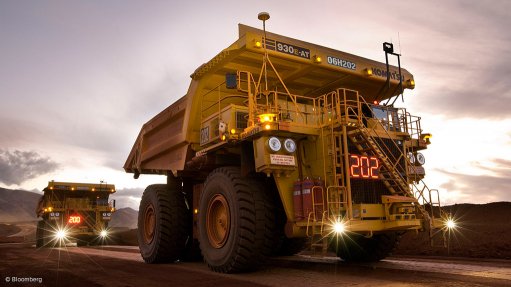
Photo by: Bloomberg
PERTH (miningweekly.com) – A jubilant Australian resources sector has welcomed the federal government’s signing of a free trade agreement (FTA) with China.
Australian Prime Minister Tony Abbot on Monday inked a landmark free trade agreement with China’s President Xi Jinping, following the G20 meeting in Brisbane.
The FTA meant that tariffs would be reduced on a range of resources and energy products, including the current 8% tariff on aluminium oxide, benefiting exports worth around A$1.3-billion a year.
Furthermore, the current 3% tariffs on coking coal would be removed from the first day of the FTA, while the 6% tariff on thermal coal would be phased out in two years.
Minerals Council of Australia CEO Brendan Pearson described the agreement as a watershed achievement in Australia’s relationship with China and marked a new phase in Australia’s relationship with North Asia, building on the recent agreements with Japan and Korea.
The agreement would eliminate tariffs that add nearly A$590-million in costs to the bilateral minerals and energy trade, Pearson said.
“We are also pleased that all remaining tariffs on minerals commodities have been eliminated. These applied to a wide range of products including alumina, zinc, nickel, copper and uranium.
“We applaud the work of Prime Minister Abbott and Trade and Investment Minister Andrew Robb and the negotiating team in completing an outstanding job to secure this outcome.”
Pearson said that at a national level, the agreement with Australia’s largest trading partner and the world’s second largest economy, would be an important contributor to Australian prosperity over the next three decades. It will also complete the latest phase of Australia's integration with three North Asian economic powerhouses - Korea, Japan and China.
At the sectoral level, the FTA would further strengthen a minerals and energy trade already worth more than A$80-billion a year.
“Importantly the announcement will strengthen a growing investment relationship, with the total stock of Chinese foreign investment in Australia at A$32-billion in 2013, including substantial investment in the minerals sector.”
The Association of Mining and Exploration Companies (Amec) CEO Simon Bennison echoed that the FTA would be a boost to the Australian resources sector.
“It will increase Australia’s international competitiveness and support Australia’s resources and energy exports into China, worth over A$83-billion in 2013.
“Zero tariffs will be locked-in for iron-ore and gold. In the past three years, gold exports to China have increased 1 173%, with China now accounting for 64% of Australia’s total gold exports.”
Bennison said that the elimination of coking coal and thermal coal tariffs would also be a boon to the Australian coal industry, which has been hard-hit by the recent decline in commodity prices.
“The agreement also provides opportunities for Australian suppliers to export their services to China. China has guaranteed access for Australian suppliers to provide a range of services related to using iron-ore, copper and manganese resources in cooperation with Chinese partners,” Bennison added.
“The China-Australia free trade agreement is extremely positive for the Australian resources sector and the Australian economy as a whole.”